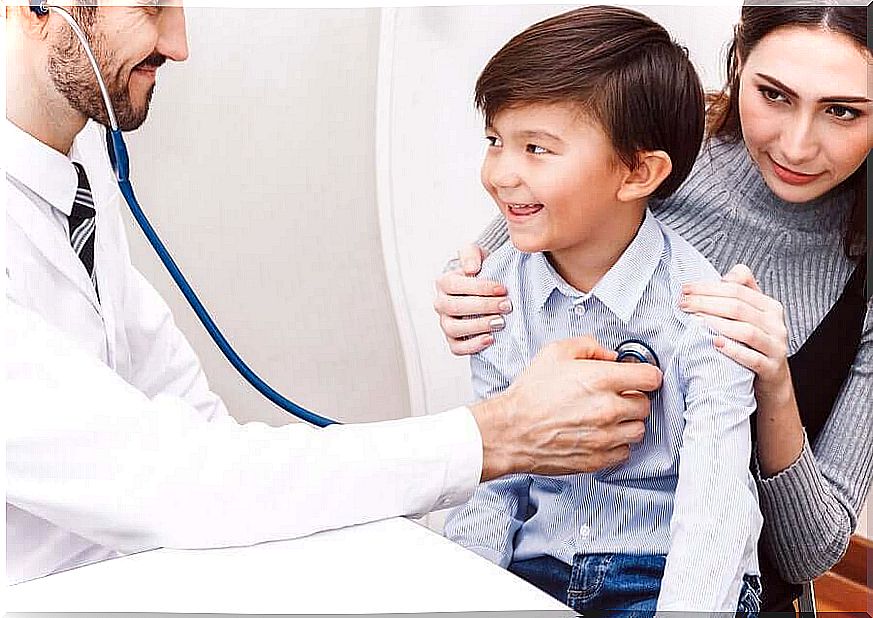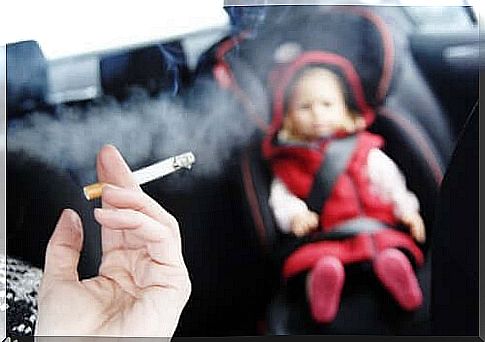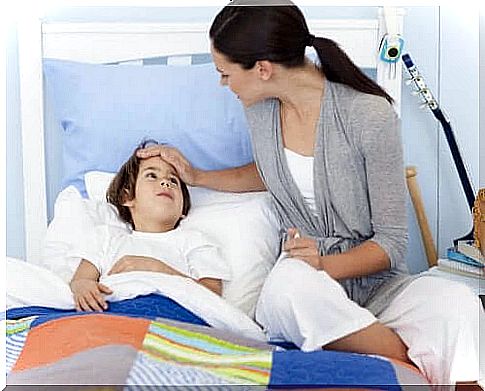6 Tips To Help A Child With Breathing Difficulties

We must be aware of the symptoms and know how to recognize when a child has difficulty breathing. Although in most cases this is due to the accumulation of mucus, difficulty breathing is a symptom that can overshadow other health conditions.
In this article, we’ll give you some tips on what to do in these cases.
dyspnea in children
Difficulty breathing or dyspnoea is a symptom of the respiratory system. In this sense, it can manifest with more or less intensity. This is difficulty breathing correctly, with a feeling of shortness of breath that can even cause the child to stop talking in order to breathe.
Being a symptom, there are many conditions that can cause it. In fact, perhaps the difficulty comes from a cold, a consequence of the mucus that builds up and prevents the little one from breathing well. It can also be the manifestation of other diseases, such as laryngitis, bronchitis or asthma, for example.
Dyspnea is also a symptom of allergy, pneumonia and, of course, it can also appear when the child is choking. Lastly, we must not forget that anxiety and stress can also lead to episodes of dyspnea.
What to do if a child is having difficulty breathing?
Go to the doctor

First of all, depending on the type of difficulty the child has, we must decide if it is necessary to go to the hospital. In case of breathing noises, rapid breathing, bluish color on the lips or more marked sternum cavity during breathing, we must go to an emergency center to have the child examined.
In addition, whether it is an emergency or not, it is necessary to consult the pediatrician about the child’s breathing difficulties so that he can make a diagnosis, determining the cause.
Keep Calm
Whatever the source of dyspnea, it is important that the child’s parents or guardians remain calm. If you become stressed, it can make your child nervous and therefore increase their difficulty in breathing.
Avoid “charged” environments

If your child has difficulty breathing, you should remove them from environments that are charged with, for example, cigarette smoke. Also, you should take it outside for fresh air. Oxygen will help you feel better and calm down in the event of an episode of acute dyspnoea.
In any case, regardless of the severity of the difficulty in breathing, we must always prevent minors from being exposed to this type of environment.
do nasal washes
The use of saline solution is the best medicine to dissolve the accumulated mucus. This can help your child breathe better. In the case of babies, the regular use of saline solution is also recommended to avoid this accumulation.
Nasal washes will clean the nasal passages, preventing them from clogging and accumulating more mucus. In this way, we will alleviate and prevent the occurrence of dyspnea. However, if the difficulty does not lessen, we should see a doctor. Perhaps it’s another more serious condition.
Lay the child on his back and with his torso raised to sleep

The child’s posture at bedtime is important to prevent dyspnea from appearing at night. Therefore, we must prevent the child from sleeping on his stomach or completely lying down. A semi-vertical, face-up position will facilitate mucus flow and breathing.
Keep a proper humidity level at home
The level of humidity inside the house can improve or worsen dyspnea. For this reason, if you have a humidifier, you can use it to keep the humidity at a suitable level.
In any case, the child’s difficulty in breathing can be due to very different and different causes. Therefore, if this difficulty is acute or persists, it is necessary to consult a doctor. After the necessary tests, he will be able to diagnose the cause and start the most appropriate treatment.









